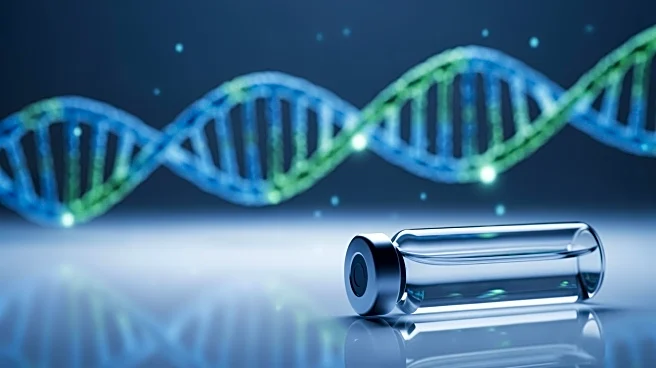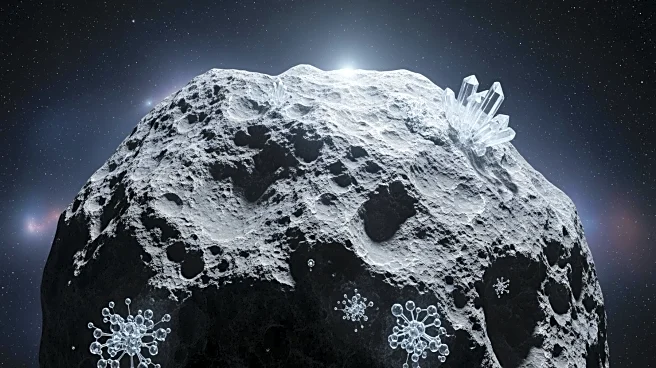What's Happening?
Researchers from University College London have successfully recreated a chemical reaction in the laboratory that may explain the origins of life on Earth. This study, led by Professor Matthew Powner, focused on simulating early Earth conditions to observe how amino acids, the building blocks of proteins, could naturally bind to RNA strands without the aid of enzymes or complex biological structures. The reaction, known as aminoacylation, was achieved using thioesters, compounds common in metabolic reactions, under conditions mimicking primitive ponds or volcanic lakes. This breakthrough provides insights into how genetic information could have first linked with proteins, a mystery that has puzzled scientists for over four billion years.
Why It's Important?
The findings of this study are significant as they bridge the gap between metabolism and genetics, two fundamental aspects of life. By demonstrating a plausible pathway for the formation of proteins before the existence of cells, this research offers a potential solution to the longstanding question of how life began. The simplicity of the reaction, occurring in water at ambient temperature and neutral pH, suggests that life could have originated in modest environments like ponds. This discovery not only enhances our understanding of life's origins on Earth but also raises the possibility of similar processes occurring on other planets, potentially expanding the search for extraterrestrial life.
What's Next?
The study opens new avenues for further research into the origins of life, both on Earth and beyond. Scientists may explore the potential for similar chemical reactions in different environmental conditions, which could provide further insights into the early stages of life formation. Additionally, this research could inform the search for life on other planets by identifying environments that might support such chemical processes. As the scientific community continues to investigate these possibilities, the findings could lead to a deeper understanding of life's emergence and evolution.
Beyond the Headlines
This discovery challenges traditional assumptions about the complexity required for life to begin, suggesting that simple chemical reactions could have profound implications. The study also highlights the potential for interdisciplinary research, combining chemistry, biology, and geology to explore life's origins. Furthermore, it prompts ethical and philosophical considerations about the nature of life and our place in the universe, as understanding the simplicity of life's beginnings may influence perspectives on life's uniqueness and prevalence.








